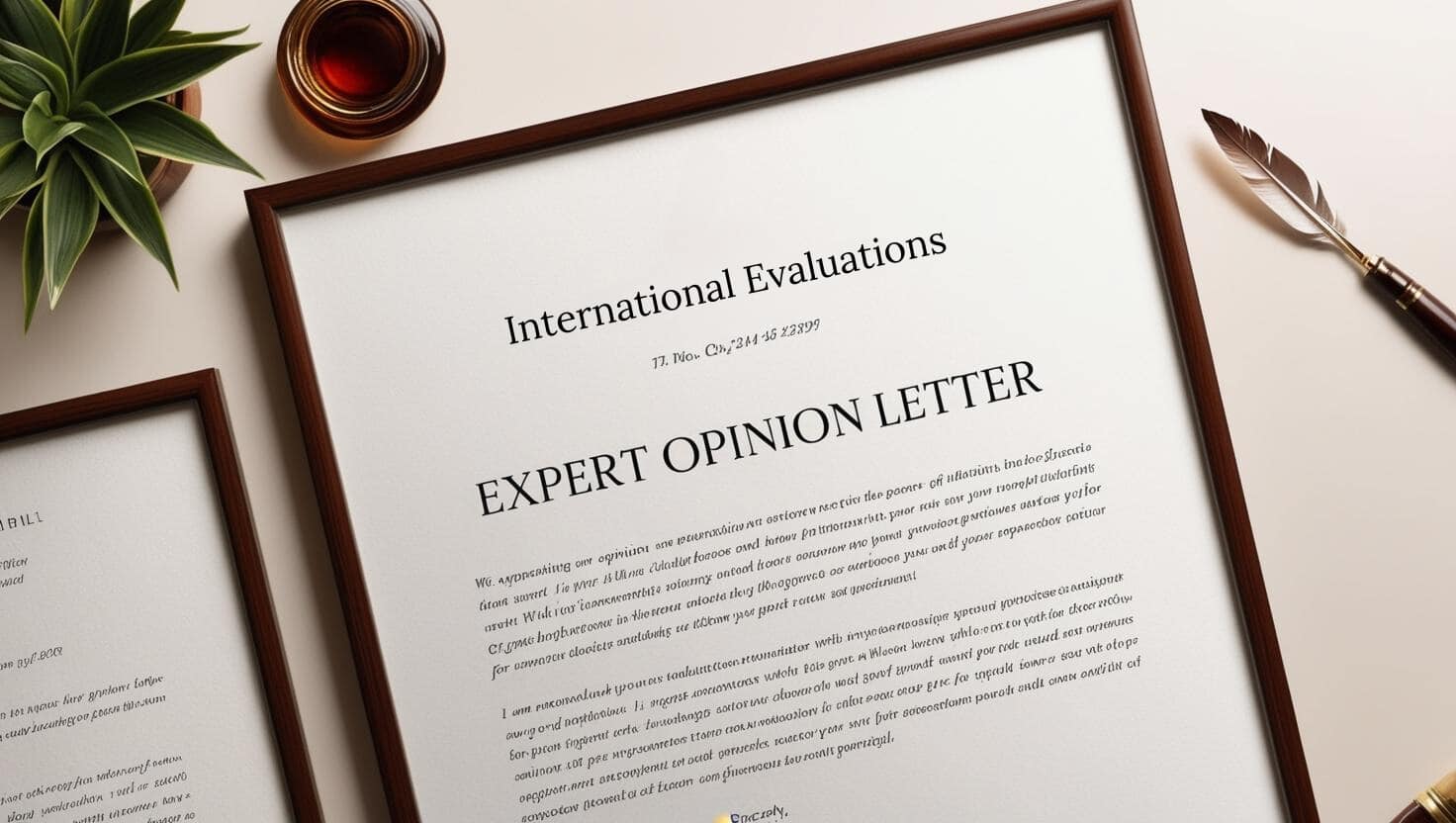Introduction
In an increasingly globalized world, the requirement to examine work experience properly has actually never ever been more vital. People looking to advance their professions or relocate often find themselves navigating a maze of academic and expert credentials from various nations. For companies and universities alike, understanding these credentials is essential in making sure that they select the right candidates.
This short article dives deep into Unlocking Possible: Comprehensive Work Experience Assessment Techniques, checking out numerous methodologies, including academic credential evaluation, international credential examination services, course-by-course credential evaluation, and the importance of the expert viewpoint letter in making informed choices about potential workers or students.
Unlocking Potential: Comprehensive Work Experience Evaluation Techniques
Evaluating work experience functions as a bridge between private prospective and chance. Yet, how do we open this possible efficiently? The answer depends on a multi-faceted technique that integrates different examination techniques customized to private requirements and contexts.
Understanding Work Experience Evaluation
Work experience examination assesses an individual's professional background, skills, and competencies relative to job requirements or instructional requirements. This process can significantly vary based on region, market, and specific roles.
The Value of Precise Evaluation
Why is precise work experience assessment vital? Slipups can lead to bad hiring decisions, mismatched instructional placements, or unfulfilled profession aspirations. It's essential for employers and organizations to ensure they make use https://telegra.ph/Credential-Evaluation-Services-Bridging-the-Space-In-Between-Academics-and-Careers-09-03 of exact approaches when examining qualifications.
Key Parts in Assessing Work Experience
Professional Background Check
An extensive review of previous employment history is crucial. This consists of confirming task titles, periods of employment, obligations held, and achievements.
Skills Assessment
Understanding the abilities obtained during previous roles helps assess suitability for future positions.
Industry Relevance
Assessing whether past experiences align with present industry requirements is essential for a meaningful assessment.
Academic Credential Evaluation
This involves examining any official education received alongside expert experience.
Types of Credential Evaluations
International Credential Assessment Services
When prospects have qualifications from foreign organizations, international credential assessment services come into play.
What Are International Credential Evaluation Services?
These services evaluate foreign instructional credentials against regional standards. They provide insights into how degrees translate within the domestic education system or labor market.
Why Use These Services?
- To comprehend equivalency in regards to education level To facilitate smoother immigration processes To enhance employability by validating foreign qualifications
Course-by-Course Credential Evaluation
What Is Course-by-Course Credential Evaluation?
This type examines each course taken throughout a prospect's education journey instead of simply providing a total degree equivalency.
Benefits
- Detailed insights into specific courses carried out Enables institutions to make educated decisions regarding credit transfers Supports candidates looking for additional education by highlighting strengths and weak points
Crafting Efficient Professional Opinion Letters
An expert viewpoint letter acts as a crucial document in many examination procedures.
What Is a Specialist Opinion Letter?
This letter is composed by experts who have competence in examining educational credentials or work experience relative to market standards.
Why Are They Important?
Expert viewpoint letters serve multiple functions:
- Provide authoritative assessments Validate claims made by candidates about their experiences Enhance credibility throughout application processes
Steps for Performing a Comprehensive Work Experience Evaluation
Gather Documentation
Collect all relevant documents consisting of CVs, referral letters, and efficiency reviews.
Conduct Interviews
Direct conversations offer much deeper insights into prospects' experiences and soft skills.
Use Standardized Tools
Utilize frameworks or tools created for assessing abilities and experiences systematically.
Comparison Versus Standards
Align findings with market standards to establish relevance and value.

Compile Findings into Reports
Present outcomes clearly for stakeholders' review-- openness is key!
Challenges in Work Experience Evaluation
Recognizing Pitfalls
Despite best efforts, obstacles abound in evaluating work experience properly:
Cultural Differences Variability in Job Titles Lack of Standardization Throughout AreasHow to Overcome These Challenges?
- Train evaluators on cultural competency. Utilize databases that clarify task title equivalencies throughout industries.
FAQs
1. What does academic credential evaluation entail?
Academic credential evaluation generally includes evaluating degrees acquired from different organizations worldwide to determine their equivalency in another nation's education system.
2. Why are international credential assessment services necessary?
They help verify foreign credentials so that individuals can acquire work or admission into curricula without confusion over their credentials' legitimacy.
3. What identifies course-by-course credential assessment from routine evaluations?
Course-by-course examinations evaluate each private course taken throughout one's education instead of simply assessing the degree as a whole.
4. How does a skilled opinion letter support my application?
An expert opinion letter supplies authoritative backing for your claims regarding your credentials or experiences and can substantially boost your application's strength.
5. What are common difficulties dealt with during work experience evaluations?
Common difficulties include cultural distinctions impacting analyses of roles/skills, irregularity in job titles throughout areas, and absence of standardization resulting in confusion over equivalencies.
6. How can I get ready for a work experience evaluation?
Gather thorough documents like your CV/resume, referrals from previous companies, performance reviews if offered, and be all set to discuss your experiences candidly during interviews.
Conclusion
As we have actually checked out throughout this article on " Unlocking Possible: Comprehensive Work Experience Evaluation Techniques," it's clear that effective assessments depend upon nuanced understanding and precise execution of numerous methods-- ranging from academic credential examinations to expert opinion letters that provide credence to individual narratives.
Employers need to embrace these comprehensive methods not simply as administrative requirements however as opportunities to empower individuals through fair evaluations-- ultimately opening the huge potentials hidden within diverse backgrounds worldwide! By investing time in refining these techniques today, services can construct stronger teams tomorrow while individuals can navigate their career paths with clearness and confidence.